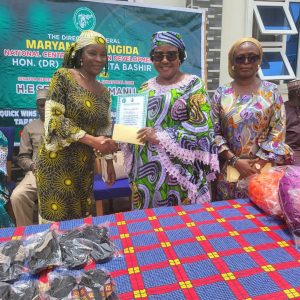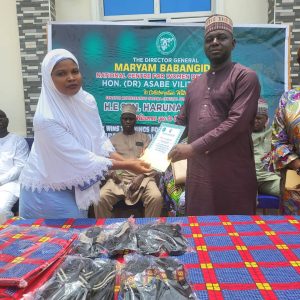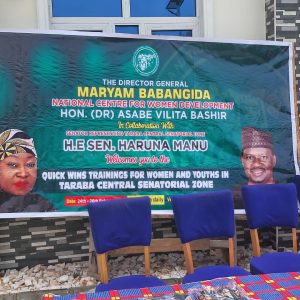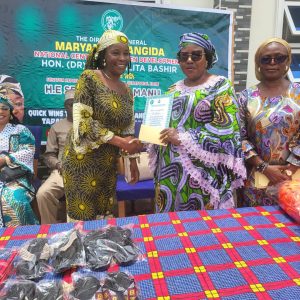News
5-Point Agenda For New CJN by Eminent Nigerian Lawyers
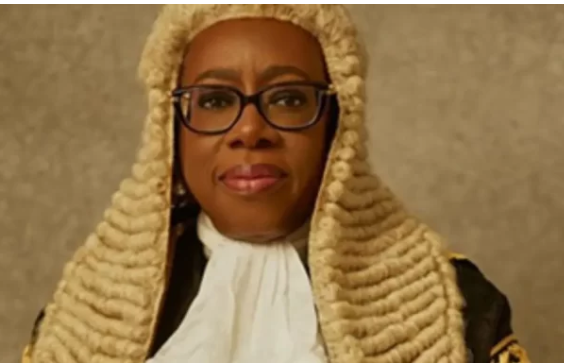
…By Ernest Ojukwu, SAN; Sam Erugo, SAN; Chidi Anselm Odinkalu; and; Mbasekei Martin Obono
Amid the greatest crisis of judicial authority since Nigeria’s independence in 1960, President Bola Ahmed Tinubu on 23 August 2024 swore in an Acting Chief Justice of Nigeria (CJN). For the new Chief Justice, this challenge is also an opportunity to articulate an agenda for reform that can restore public trust in the judiciary. Such an agenda must address the following:
(a) ensuring merit-based judicial appointments;
(b) addressing the problem of abuse of interim injunctions, ex-parte orders, and conflicting judgements;
(c) enhancing judicial discipline and accountability;
(d) addressing the crisis of political cases, election petitions, and judicialisation of politics; and
(e) reform of the Supreme Court.
1.JUDICIAL APPOINTMENTS*
The National Judicial Council (NJC), which oversees judicial appointments and is led by the CJN, has been severely criticised for mishandling judicial appointments. In 2020, for instance, it authorised 15 vacancies for the Federal Capital Territory High Court but nominated 34 for appointment.
The NJC has also been accused of retrenching its Procedural Rules for judicial appointments, thereby undermining merit-based appointments; compromising judicial integrity; and breeding a loss of confidence in the judiciary.
Against this background, it is of the utmost importance that the new CJN commits explicitly to a policy of restoring integrity and merit to judicial appointments through the introduction of transparent processes of advertisement of vacancies; nomination of candidates, interviews, short-listing, and selection.
2.CONFLICTING JUDGEMENTS AND ABUSE OF INTERIM INJUNCTIONS
Rule 3 (3.5) of the Judicial Code of Conduct provides that “a Judicial Officer must avoid the abuse of the power of issuing interim injunctions, ex parte.” Although the standards governing interim injunctions are very well established in Nigeria, these are often either disregarded or abused without consequences.
Equally, courts of co-ordinate jurisdiction routinely issue conflicting orders that seem almost calculated to damage the institution of the judiciary.
It is suggested that:
(a)Priority should be accorded to monitoring and reporting interim or ex parte orders by trial judges. There should also be clear consequences attached to a breach of the Judicial Code of Conduct.
(b)Judicial appraisals should be both quantitative and qualitative. Accordingly, they should proactively address evidence of ethical deficits in the work or output of judges, focusing on adherence to ethical guidelines and the quality of judicial decisions.
(c)There should be clear Practice Directions on the management of jurisdictional overlaps. The structure and scope of such overlaps should be discussed at the All Nigerian Judges Conference and the Practice Directions should be uniform across all the court systems in the country.
(d)The NJC should establish a central database or easily searchable platform for judges to share information on ongoing cases.
3.DISCIPLINE AND ACCOUNTABILITY
Preserving the dignity and integrity of the judiciary hinges on upholding discipline and accountability which is in turn essential for preserving the institutional authority of the judicial branch. If the judiciary lacks credibility, its authority suffers irredeemably.
Tragically, this eventuality may already be upon us. A recent survey by the United Nations Office of Drugs and Crime (UNODC) and the National Bureau of Statistics (NBS) finds the judiciary as the recipient of the highest per capita rates of bribery, ahead of both the Nigeria Police Force and the Nigerian Customs Service.
The damage that this does to the institutional credibility and authority of the judiciary is incalculable. To reverse this, it is suggested that:
(a)Disciplinary processes within the judiciary should be both prompt and decisive and dispositions should be calibrated to be proportionate to the seriousness of the misconduct found.
(b)Reports on disciplinary investigations by the NJC should routinely be transmitted to law enforcement agencies for follow-up.
(c)The CJN should initiate public consultation leading within six months to an announcement of measures designed to address the escalating patterns of judicial corruption as documented by the UNODC-NBS Corruption in Nigeria Report 2024.
4.ELECTION PETITIONS AND POLITICAL CASES
Political cases and election petitions now increasingly threaten the foundations of fairness on which the judicial system should be anchored. Of 248 judgements issued by the Supreme Court in the last judicial year, 74 or about 30% were “political cases.”
At a similar occasion only two years ago, his predecessor reported that the court’s portfolio of 269 appeals disposed of included 139 civil appeals, 102 criminal appeals, and 28 “political cases.”
The volume of election petitions has become an adverse charge on the credibility of the judiciary and an intolerable burden on both judges and non-political court users alike.
Underlying this burden is a judiciary that has installed itself as the sole dispenser of electoral mandates, with judges routinely substituting their views for the votes of the people contrary to the considered recommendations of two presidential panels on electoral reform led respectively by former Supreme Court Justice, Bolarinwa Babalakin in 1986 and by former Chief Justice Mohammed Lawal Uwais in 2008. It is suggested that:
(a)The Chief Justice should initiate reform of the election dispute resolution system to ensure the implementation of the Babalakin Commission and Uwais Panel recommendations concerning the need for Courts to respect and not subvert the will of the people in elections.
(b)The category of “political” cases should be reviewed and court systems should be encouraged to establish Alternative Dispute Resolution (ADR) mechanisms for political disputes.
(c)Consideration should be given to utilizing retired senior judges for the administration of election dispute resolution, so that serving judges may be preserved for regular court work.
(d)Election petitions should be disposed of before inauguration. The current practice whereby candidates are sworn in despite pending petitions against them facilitates judicial capture.
5.REFORMING THE SUPREME COURT
The Supreme Court is overburdened and its Justices are paying for this with their lives. In the 30 months from the beginning of 2021 to the middle of 2023, three Justices of the Supreme Court tragically died in service.
This period coincided with a revolt by Justices against the conditions of work and judicial well-being at the Supreme Court. These two developments underscore very clearly the urgent need for reform of the Supreme Court.
As the apex court, the Supreme Court should settle the most rarefied questions of law and legal policy in Nigeria.
Instead, it is burdened with inconsequential appeals and crippled by priority to political cases.
The result is a court with an ungovernable docket which also endangers the constitutional promise of fair trial “within a reasonable time.”
Structural and procedural enhancements needed to improve the efficiency and effectiveness of the Supreme Court will include:
(a)The National Assembly should review and re-enact the Supreme Court Act and amend the Constitution to limit the kinds of cases or appeals that can be introduced to the Supreme Court.
(b)The full digitization of the Supreme Court is overdue. Judgements should be publicly available on the day they are delivered and it should be possible to do filings at the court remotely.
(c)The Court needs to implement a structured system of judicial clerkships which would help to relieve Justices of some of the tedium of research and writing.
CONCLUSION
Far from being exhaustive, this five-point agenda only highlights pressing priorities for the incoming CJN. There remain important issues, such as the question of whether the NJC has continuing relevance; what should be its composition (if it continues to exist), and whether or not it should continue to co-exist as it presently does with the Federal Judicial Service Commission (FJSC).
As the African Commission on Human and Peoples’ Rights declared in 2009: “Courts need the trust of the people to maintain their authority and legitimacy. The credibility of the courts must not be weakened by the perception that they can be influenced by any external pressure.”
Success in judicial reform will depend on engaging a broad constituency of stakeholders, especially citizens, civil society, and court users. By fostering a collaborative approach to judicial reform, the CJN can construct the foundations for reclaiming public trust.
The measures suggested here can reverse inefficiencies; retrench renegades from the system; and reposition the judiciary as an institution fit for the changing landscape of a complex political economy.
By implementing these changes, the new CJN can rebuild public confidence; put the judiciary on track towards credibility; and guarantee a legacy that will be evergreen at the end of her tenure.
Prof. Ernest Ojukwu, SAN is former Deputy Director-General of the Nigerian Law School
Prof. Sam Erugo, SAN is former Dean of Law, Abia State University
Prof. Chidi Anselm Odinkalu, former Chair of Nigerian National Human Rights Commission teaches at the Fletcher School of Law and Diplomacy at Tufts University
Mbasekei Martin Obono, a lawyer, is Executive Director of TAP Nitiative, a Citizens’ Advocacy Organisation
News
Pope Francis finally laid to rest

Pope Francis was buried inside his favourite Rome church after a funeral mass in St Peter’s Square, the Vatican said on Saturday.
Francis who died on Monday aged 88, was laid to rest during a 30-minute ceremony which started at 1:00 pm (1100 GMT) at the Santa Maria Maggiore basilica in the Italian capital.
Footage shared by the Holy See showed cardinals marking his wooden and zinc coffin with red wax seals.
Cardinal Kevin Farrell, who as camerlengo is running the Vatican’s day-to-day affairs until a new pope is elected, sprinkled it with holy water after it was lowered into a tomb set inside an alcove.
A reproduction of the pectoral cross worn by Francis during his lifetime hung above it.
Francis had asked that the tomb, located near the altar of Saint Francis, be simple and unadorned, reflecting the humble spirit of his papacy.
The tombstone bears only the inscription “Franciscus” — the pope’s name in Latin.
Its marble is sourced from Liguria, the northwestern Italian region once home to the Argentine pontiff’s Italian ancestors.
Francis, born Jorge Bergoglio, had specified in his will the exact spot he wanted to be buried, in the side nave of the beloved fifth-century AD church.
The pontiff was devoted to the worship of the Virgin Mary and made a point of praying in Santa Maria Maggiore before leaving on trips abroad and upon his return to Rome.
He declared his desire to be entombed there in 2023.
Located in the heart of Rome, the basilica already holds the tombs of seven popes.
But the last one to be buried there was Clement IX in 1669. More recently, popes have usually been buried in St Peter’s Basilica.
One of four papal basilicas in Rome, Santa Maria Maggiore also holds the remains of several other renowned figures, such as the architect and sculptor Gian Lorenzo Bernini, who designed St Peter’s Square and its surrounding columns.
News
Just in: Gunmen invade pro-Wike group in Bayelsa
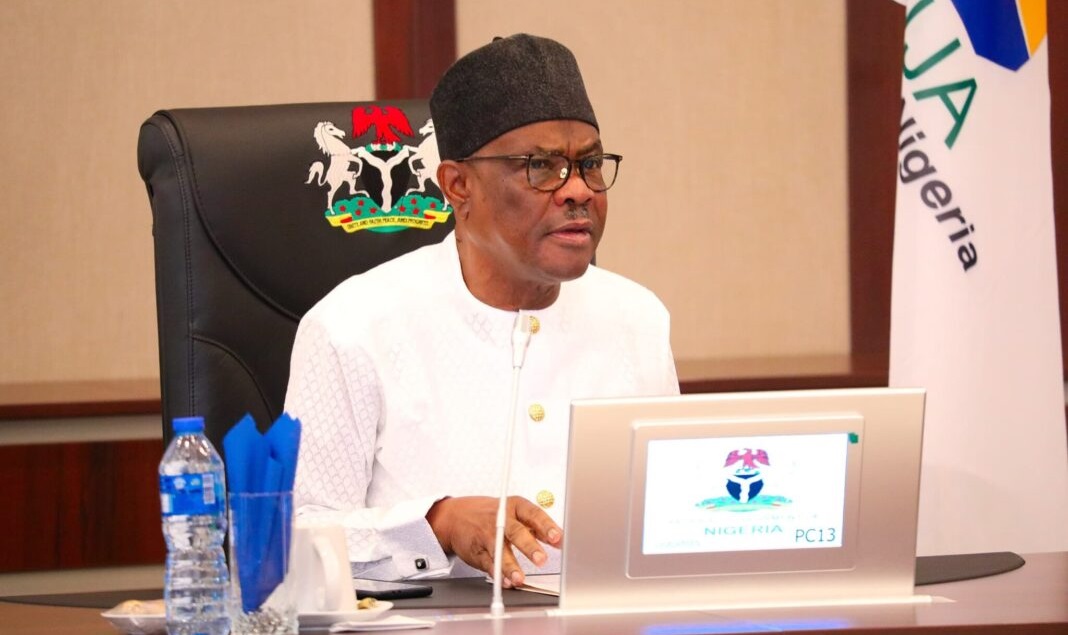
Gunmen suspected to be hired political thugs disrupted a rally organised in support of Minister of the Federal Capital Territory, Nyesom Wike, on Saturday in Yenagoa, Bayelsa State.
The event, which also marked the inauguration of the NEW Associates group, was meant to thank President Bola Tinubu for appointing sons and daughters of Bayelsa into positions in his administration, while also showing support for Wike, who serves as the group’s grand patron.
Originally scheduled for April 12, the rally had been postponed to April 26 after another group, supporters of Governor Douye Diri, booked the same venue and date for their own rally.
Although both groups eventually rescheduled, tensions remained high.
Supporters of NEW Associates had gathered early at the Church of God Mission Camp, ready for the event, when armed men suddenly emerged from nearby creeks and bushes, firing gunshots into the air.
The crowd quickly scattered in fear, while security forces including the Nigeria Police, the Nigeria Security and Civil Defence Corps (NSCDC), and the Department of State Services (DSS) responded by pushing back the attackers and searching the surrounding area to prevent further violence.
After the incident, Comrade Ebilade Ekerefe, Secretary of NEW Associates and former spokesperson of the Ijaw Youths Council, accused the state government of trying to disrupt their peaceful gathering.
He insisted the rally would go on, stating that their intention was simply to express gratitude to the President and show solidarity, and questioned why anyone would feel threatened by such an event.
Similarly, Dr Pabara Igwele, the immediate past Commissioner of Health in Bayelsa, described the rally as peaceful and blamed the disruption on political motives.
He also vowed that the rally would continue despite the attack.
After the initial chaos, supporters regrouped to carry on with the event.
News
Senator Manu Haruna Launches Quick Wins Training for Women and Youths in Taraba Central Senatorial District+Photos
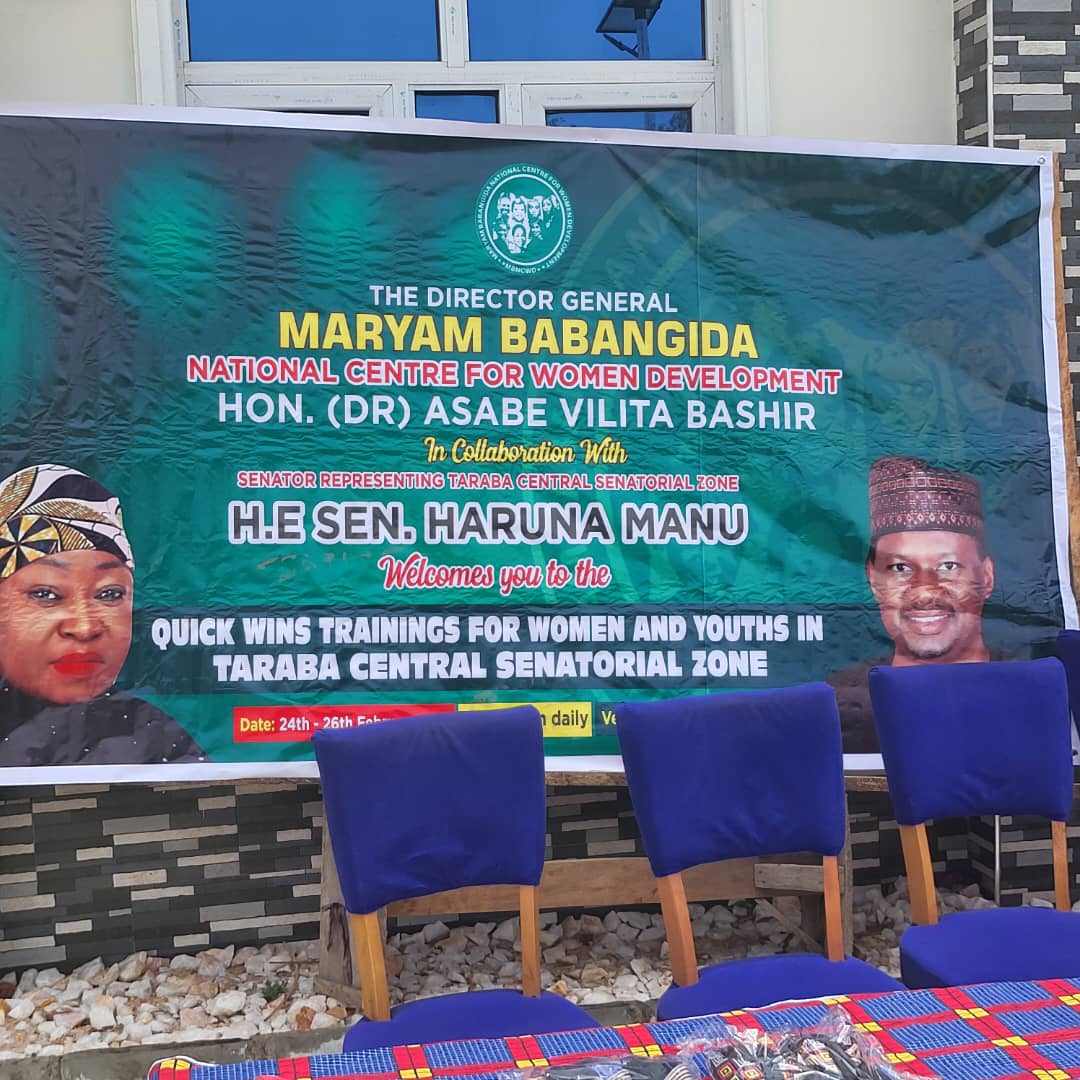
Senator Manu Haruna of the Taraba Central Senatorial District on Saturday concluded a three-day Quick Wins Training program dedicated to empowering women and youths in the District .
The event took place in Jalingo, the capital city of Taraba State, in collaboration with the Maryam Babangida National Centre for Women Development.
The training initiative is aimed to equip participants with practical skills and knowledge that can foster economic independence and stimulate community development. This program is a reflection of Senator Haruna’s commitment to improving the socio-economic status of underrepresented groups within his constituency.
The event was attended by prominent leaders, including Hon. Veronica Alhassan, Member of the House of Assembly for Bali I Constituency, and Hon. Alhassan Hamman, who presented certificates to participants on behalf of Senator Manu Haruna.
The involvement of critical stakeholders underscored the importance of collaboration between government officials and community leaders in driving sustained progress in Taraba Central.
Among the distinguished attendees were Hon. Ubale Gambo, Hon. Bala Baba, Alhaji Muhammad Nagaggo, Alhaji Raubilu Umar, among others, all of whom are dedicated to fostering development within the region.
Senator Manu Haruna expressed his gratitude to the National Centre for Women Development and all partners involved in the initiative.
He stressed the transformative potential of empowering women and youths, noting the necessity for continued support and resources to ensure sustainable growth in Taraba State.
This Quick Wins Training is poised to have a long-lasting impact on participants, equipping them with essential skills to make valuable contributions to their communities and the broader economy of Taraba State. By investing in the future of these underprivileged groups, the program seeks to inspire change and promote self-sufficiency among the local populace.
-
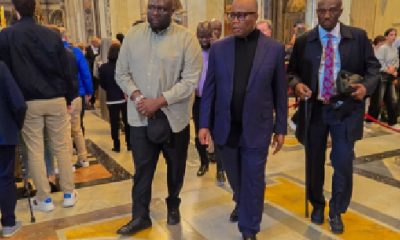
 News18 hours ago
News18 hours agoAkpabio arrives Vatican ahead Pope’s funeral
-
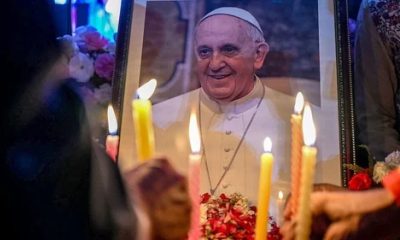
 News12 hours ago
News12 hours agoList of World Leaders that are present in the final funeral of Pope Francis
-

 News8 hours ago
News8 hours agoJust in: Gunmen invade pro-Wike group in Bayelsa
-

 News16 hours ago
News16 hours agoDefections: Teejay Yusuf traces genesis of PDP palaver, key issues affecting Nigeria’s largest opposition party
-

 News12 hours ago
News12 hours ago2Face estranged wife, Annie Macauley breaks silence after he married Natasha
-
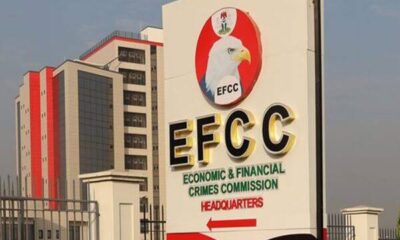
 News17 hours ago
News17 hours agoCBEX: EFCC declares four persons wanted over crypto fraud + photos
-

 News17 hours ago
News17 hours agoScandal! Osun monarch, pastor admit to COVID-19 fraud in US
-
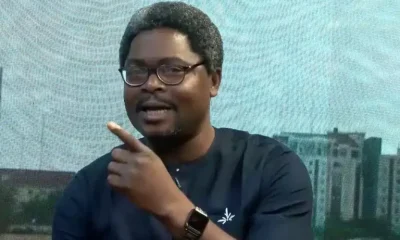
 Politics15 hours ago
Politics15 hours agoUgochinyere remains Nigeria’s number one Hushpuppi of politics-Olayinka carpets Imo Rep


